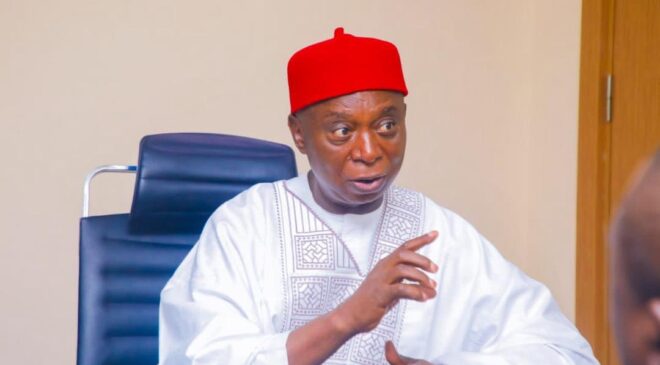
LAGOS/Nigeria: The agitation for the creation of Anioma State has taken a significant step forward following reports that the National Assembly Joint Committee on Constitutional Amendment, which recently met in Lagos, has approved the creation of one additional state for the South-East region, a move many believe strongly favours Anioma.
At the centre of this renewed momentum is Senator Ned Nwoko, representing Delta North Senatorial District, whose sustained advocacy and deft political engagement have brought the Anioma cause to national prominence.
For over a year, Senator Nwoko has advanced the argument that the South-East remains the only geopolitical zone in Nigeria with five states, compared to six or more in other zones. This, he maintains, has resulted in reduced representation, lower federal allocations, and diminished political influence for the region.
His Anioma State Creation Bill seeks to address that imbalance by carving Anioma State from the nine local government areas of Delta North and formally integrating it into the South-East geopolitical zone. With the National Assembly Committee’s reported endorsement of a new state for the region, Nwoko’s vision appears closer to fruition than ever before.
The senator’s strategy has been a blend of grassroots mobilization, legislative diplomacy, and national consensus-building. Within the Senate, he is said to have secured the signatures of over 90 lawmakers in support of the Anioma proposal, an indication of its growing national acceptance.
Beyond the legislature, Nwoko has consulted widely with governors, traditional rulers, and civil society groups, framing the Anioma demand not as a local or ethnic pursuit but as a question of national fairness and federal balance.
“If Nigeria truly believes in equity and justice, the South-East must be brought at par with other regions. Anioma provides the perfect answer, culturally linked to the Igbo nation, economically viable, and administratively ready,” he stated.
Among various statehood demands across the South-East, Anioma’s case has emerged as the most compelling. Its strengths lie in zonal equity, cultural affinity with the Igbo heartland, strong economic potential, and a sizeable population that would bolster the South-East’s demographic and political weight.
With the constitutional review committee’s approval of one new state for the South-East, many observers expect other statehood movements—such as those for Aba, Adada, Orashi, and Etiti, to rally behind Anioma as the most feasible and nationally acceptable option.
If Anioma State is eventually created, it would mark a historic realignment in Nigeria’s federal structure. For the South-East, it would restore parity with other regions in legislative representation and federal appointments. For Delta State, it would relieve long-standing administrative pressures while granting the Anioma people direct control over their development priorities.
Nationally, the development would stand as a model of peaceful, consensus-driven state creation, proof that inclusivity and equity can be achieved through dialogue rather than agitation. It would also serve as long-overdue recognition for the Igbo-speaking communities west of the Niger who have long sought integration with their cultural kin.
Despite the apparent breakthrough, the constitutional process is still ongoing. The proposal must secure approval from two-thirds of state Houses of Assembly and receive presidential assent before becoming law. However, with the Lagos meeting of the National Assembly Committee setting the tone and the Anioma proposal taking the lead, momentum is firmly on Nwoko’s side.
Senator Nwoko has vowed to continue consultations across all tiers of government to ensure that the legal, administrative, and cultural foundations for Anioma State are firmly established.
From passionate advocacy to legislative breakthrough, Nwoko’s leadership has been instrumental in pushing the Anioma dream into the national spotlight. If realized, the creation of Anioma State would not only fulfill a long-standing aspiration but also stand as a landmark in Nigeria’s quest for equity and balanced federalism.
As momentum builds from Lagos to Abuja and across the South-East, one reality now stands clear: Anioma State is no longer a distant dream—it is a nation’s promise waiting to be fulfilled.
